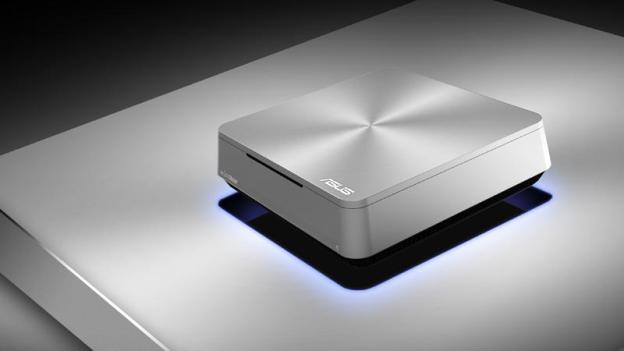
If you were scouring deep into Computex 2013 coverage last week, you may recall catching a glimpse at a new miniature creation from Asus. We got a quick sneak peek at the Asus ViVoPC, but the company kept most things concerning its device shrouded in mystery. We knew what the little guy looked like, but we had no idea what to expect in terms of specifications and upgrades. Thankfully, we now have a better picture of the ViVo’s internal hardware, thanks to a spec sheet popping up on the Asus website.
The heart of the ViVoPC is an Intel processor. The spec sheet doesn’t really specify what type of Intel processor, but it’s possible we will see a brand new Haswell integrated. The board comes complete with two DDR3 SO-DIMM RAM slots that are capable of housing up to 16GB of system memory. The spec sheet reveals that you’ll have an option when it comes to storage, either and SSD or an HDD, and the graphics controller is classified as “Intel HD Integrated graphics” (on-board). The ViVoPC is 802.11ac ready, and includes Bluetooth 4.0 connectivity.
There are a lot of ports here, including three USB3, four USB2, one HDMI, one VGA, three audio jacks, one SPDIF out, and one LAN (RJ45). Asus has also included a specialized set of what it calls “Sonic Master” speakers. The Asus ViVoPC mini is reportedly Windows 8 ready. Dimensions were also revealed, showcasing a square white-topped casing and measuring in at 190 mm (length) by 190 mm (width) by 56.2 mm (height). The casing also features a sliding quick release top that will give you immediate access to the ViVo’s hard drive bay and memory slots.
Unfortunately, that’s all the information we’ve managed to milk from Asus so far. We still have no idea how much the device will cost or when we can expect to see it hit store shelves. Stay tuned and we will keep you updated as new information becomes available.


